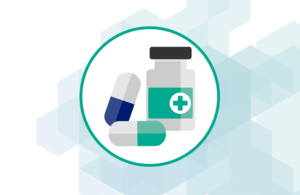Update on MHRA review into safe use of valproate
No one should stop taking valproate without advice from their healthcare professional

Valproate is approved in the UK to treat epilepsy and bipolar disorder. Because of the known risk of birth defects and neurodevelopmental disorders following use of valproate in pregnancy, valproate should only be used in women of child-bearing potential if a Pregnancy Prevention Programme is in place, which includes a requirement to use effective contraception. Valproate should not be used in female children and women of childbearing potential unless other treatments are ineffective or not tolerated.
The latest data on the use of valproate in England shows that in the last 6 months the number of pregnant women prescribed valproate in a 6-month period has fallen from 68 women in April to September 2018, to 17 women in October 2021 to March 2022. These babies have an 11% risk of birth defects and a 30-40% risk of neuro-developmental disabilities which can be permanent.
In light of concerns that the current regulatory requirements for safe use are not being consistently followed, the MHRA conducted a review of the available data and asked for advice from the independent Commission on Human Medicines (CHM), which has listened to the views of patients and healthcare professionals.
The CHM has advised that no one under the age of 55 should be initiated on valproate unless two specialists independently consider and document that there is no other effective or tolerated treatment. Where possible, existing patients should be switched to another treatment unless two specialists independently consider and document that there is no other effective or tolerated treatment or the risks do not apply.
The CHM has established an implementation group to support the safe introduction of the new measures into clinical practice over the coming months. The implementation group includes representation from across the healthcare system and has advised that the measures should be introduced in patient care through a phased programme currently under development according to patient safety priorities, in collaboration with the healthcare bodies to ensure ongoing patient care is not disrupted. No action is currently needed from patients.
The CHM has advised that their measures apply to people under the age of 55 because this is the age-group evidence suggests is most likely to be affected by the risks of valproate when taken during pregnancy and the possible risk of impaired fertility in males, which is thought to be reversible upon dose reduction or discontinuation. The possible risk of impaired fertility in males has been in the product information since 2011 and should be discussed between patient and doctor as part of the informed consent process.
As stated in the product information, there are some animal studies that show adverse effects of valproate on the testes of juvenile animals as well as transgenerational effects. We do not know what this means for human patients as it’s not always possible to be sure that an effect seen in animals will be the same in a person taking a medicine. Further work on this is being undertaken.
Further information on how the CHM recommendations will be put into practice will be communicated in due course.
In the meantime, healthcare professionals are urged to consider alternative options before initiating valproate and to continue to adhere closely to the Pregnancy Prevention Programme in girls and women of child-bearing potential who are taking valproate.
No one should stop taking valproate without advice from their healthcare professional.
See the Drug Safety Update for further information.